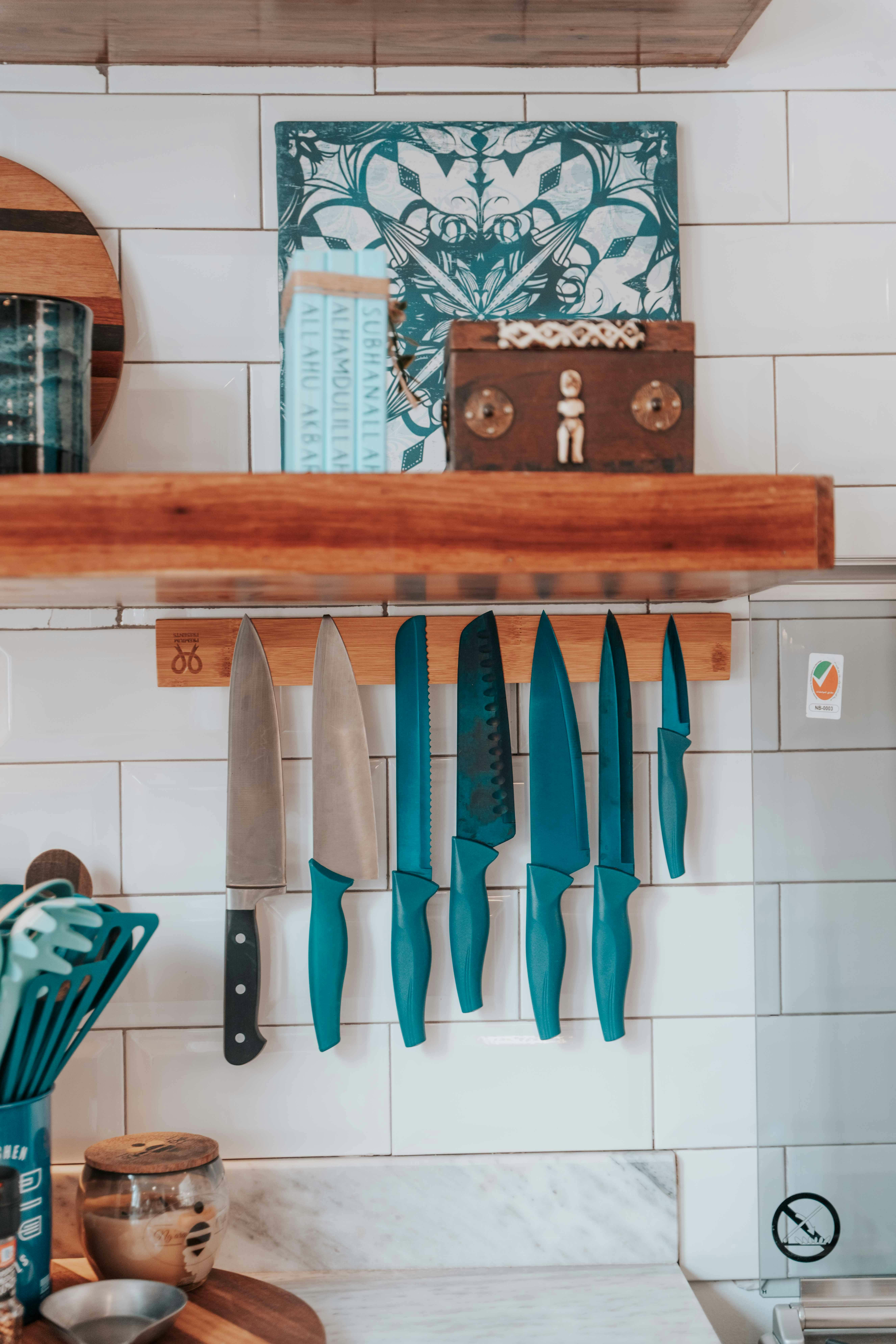Proper care and maintenance are essential to keep your kitchen knives in good condition and ensure they stay sharp. Here are some good practices:
Handwashing: Always handwash your knives with warm, soapy water immediately after use. Avoid putting them in the dishwasher, as the harsh detergents and high water pressure can damage the blade and handle.
Dry Immediately: After washing, dry the knives immediately with a soft cloth or towel to prevent any corrosion or rusting.
Use a Cutting Board: Always use a soft cutting board, such as wood or bamboo, to minimize the impact on the knife's edge. Avoid hard surfaces like glass or stone, as they can quickly dull the blade.
Proper Cutting Technique: Use proper cutting techniques to avoid unnecessary stress on the blade. Avoid twisting or prying with the knife, and use a gentle rocking or slicing motion instead.
Storage: Store knives in a knife block, magnetic strip, or on a magnetic rack. This helps protect the blades from damage and prevents them from knocking against each other.
Regular Honing: Use a honing rod or sharpening steel regularly to realign the edge of the knife. Honing doesn't sharpen the blade but helps maintain its sharpness between sharpening sessions.
Sharpening: Periodically sharpen your knives to maintain a keen edge. You can use a sharpening stone, electric sharpener, or send them to a professional knife sharpener. Follow the manufacturer's recommendations for the specific type of knife.
Knife Selection: Choose the right knife for the task at hand. Different knives are designed for specific purposes, and using the right one can help prevent damage to the blade.
Hand Protection: Consider using a cutting glove to protect your hands when handling and cleaning knives. This can prevent accidental cuts and also protect the knife edge from hitting hard surfaces.
Avoid Hard Foods: Avoid cutting through hard bones, frozen foods, or other hard substances with your kitchen knives, as this can cause the blade to chip or break.
Oil the Blade: For carbon steel knives, apply a thin layer of food-grade mineral oil to the blade to prevent corrosion. This is especially important if the knife will be stored for an extended period.
By following these practices, you can extend the life of your kitchen knives and keep them sharp for efficient and safe use.


